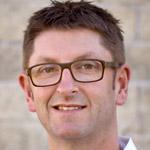
When I was 15-years-old I was bulletproof. I had all the answers to all the questions and no one could tell me otherwise. In particular I knew how to ride motorbikes and how to handle every adverse road condition I might come across.
One month after turning 15 I attained my motorbike license. It was easy back then, just be followed around town by a policeman in his car. On arrival back at the station he said, ‘looks good enough for a young fella’ and bingo, hello full motorbike license. No graduated system back then, no limit on the size of bike I could ride. Just give me power and size.
It came as a surprise to me later that afternoon when I found myself sliding underneath my motorbike into a road sign, having lost traction in loose gravel as I veered around a corner with my bulletproof mindset. It wasn’t serious, but I could see my kneecap through my ripped jeans.
Managing to ride a slightly twisted bike home, my Mum made sure I had dinner first before taking me to hospital for stitching back together. Sausages have never slid down my throat that quickly since.
Thirty-two years later I’m constantly reminded of my bulletproof days. I’ve learnt a few things since, particularly that I’m not bulletproof and I don’t have all the answers to all the questions; there are just too many questions to have answers for. I’ve also learnt through this incident and subsequent others that injuries may heal, but scars remain, and when scars get knocked, they still hurt and I have to manage the pain. Through the anguish of regular knocks or just keeping my knee bent for too long, I’m regularly reminded of this overcast day when my teenage pride was dented.
Learning to deal with physical pain is part of many people’s story; learning to deal with emotional pain seems to be the story of even more people. The pain that is often caused by others through the intentional, or careless, use of words can be very deep. Injured pride, damaged self-esteem, broken hearts and worn-down emotions create scars that are difficult to see and even harder to help.
I know about emotional scars because I carry a few myself and when they get knocked they hurt like hell. The injuries were incurred by well-meaning people and by schoolyard banter, and no doubt I allowed injuries to occur when I should have known better.
Emotional scars
Learning to manage my emotional scars is an on-going journey; I’d like to think I’ve made progress on my self-care and self-management, but when I get knocked I wonder if the pain will ever go away. Truth be told, I inherently know that while pain does perhaps ease over time, it never goes away fully. Perhaps it’s never meant to, as it can be a reminder of the progress I have made, and how I can help others through their early painful experiences.
When the Apostle Paul was writing letters to early Christians in the city of Ephesus, he was at one point talking about dealing with racism. It might not be called racism in his letter, but the Gentiles (i.e. non-Jews) were told in no uncertain terms that they are one in Christ with Jewish people (this was a tough message for Jews to hear!). ‘You are no longer foreigners and aliens, but fellow citizens with God’s people and members of God’s household,’ he writes in Ephesians 2:19.
Here in New Zealand we’ve recently commemorated Waitangi Day, remembering the signing of the Treaty of Waitangi in 1840 that was supposed to enable two peoples to live in mutual respect and harmony in one land – fellow citizens. It didn’t happen and the consequences are still painful for both sides.
The emotional (and very often the physical) pain caused by racism world-over is almost unimaginable to comprehend. It has no part in the Christian message and bears no resemblance to the values of the Kingdom of God.
The local church should be the champion for the equality of all of God’s sons and daughters. While pain is still present and scars that are knocked continue to raise challenges in many people’s lives, proper application of God’s Word to us (I include myself here) should help bring a level of healing and comfort to those who are oppressed.
Jesus once said, ‘Blessed are the peacemakers, for they will be called children of God’ (Matthew chapter 5 verse 9). May we allow history to be our teacher and with the wrongs of the past in mind, seek to lead the way in being the peacemakers the world longs for.
Perhaps then there will be less injuries, less pain, less scars, and less knocks that will then enable the message of peace that Christ came and preached to be known by more people who need to hear it.

Grant Harris is the Senior Pastor of Windsor Park Baptist Church in Auckland, New Zealand, a church that was planted 66-years ago and comprises a broad mix of people who are seeking to reach a community that consists of a broad mix of people. He likes change and revolutions and in his spare times reads about change and revolutions. Mostly, he follows Jesus willingly, but acknowledges this isn’t always easy. The tagline of Windsor Park is ‘doing life and faith, together.’

Grant Harris is a reformed banker who has been the Senior Pastor of Windsor Park Baptist Church in Auckland, New Zealand, for eleven years. Grant’s passionate about seeing people catch a glimpse of who they are in Christ and living out the difference that makes. He’s tried living according to the patterns of this world and found that those patterns came up short. He’s still a work-in-progress and always will be. You can contact Grant at grant.harris@windsorpark.org.nz.